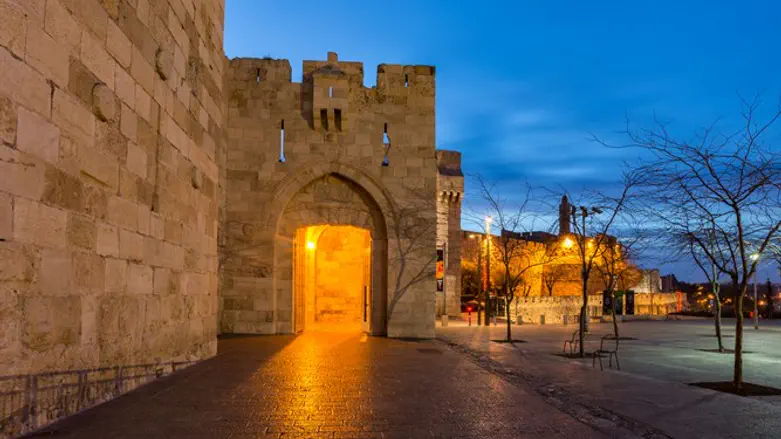
What do a journalist from the Urals, a mathematician from Tel Aviv, a philosophy researcher from Belarus, and a chemist from Hamburg have in common?
All were among 50 Russian-speaking young intellectuals selected from more than 350 applicants who just finished a week in Jerusalem studying the linguistic history of the Holy City at the 13th annual Eshkolot Festival of Jewish Texts and Ideas. This year’s theme was “War and Peace of Languages.”
The festival is unique in its unabashedly elitist nature, bringing together top researchers and seekers of knowledge from countries including Russia, Belarus, Ukraine, Israel, and Germany, among others. Eshkolot has become a closely guarded tradition, in which participants use an approach to study called “slow reading.” Each festival is dedicated to a unique aspect of Jerusalem – in 2015, participants explored the female nature of the city (the theme was “Mother or harlot: Jerusalem as a woman”), and in 2016, its intercontinental character (“Axis Mundi: Europe, Asia and Africa in Jerusalem”).
The intellectual practice of “slow reading” has developed as part of the “slow movement” aimed to decelerate from the fast pace of modern life. Slow reading aims to increase comprehension and analysis of complex materials for insight and intellectual pleasure.
This year’s festival was dedicated to in-depth exploration of the linguistic nature of Jerusalem, plunging into the “wars” among the languages associated with the city – Hebrew, Yiddish, German, Arabic, Farsi. Participants visited major institutions within the Israeli capital – including the Knesset and the Hebrew Language Academy. Plenary lectures and seminars followed, and each day ended with a cultural program, including klezmer music as well as city quest – thematic walks through the city in search of street signs and advertisements demonstrating the life of Jerusalem’s languages.
Simon Parizhsky, the festival’s program director, explained, “It is not difficult to find new themes for the festivals of ‘slow reading,’ because the 3,000-year-old global Jewish literary tradition is practically inexhaustible, especially if you count not only verbal texts, but semiotic systems like art, cinema, music and architecture as well.”
“The Eshkolot festival seeks to do two things at once: to explore great books about the city through bringing them into interaction with the living urban reality; and at the same time, to ‘read’ the city as a semiotic system to be ‘decoded’ through a variety of literary, historical, linguistic, philosophical, musical ‘keys.’”
The festival is designed to provide a forum for tackling complicated academic and cultural issues in a way that is meaningful for young intellectual audiences. Participants learned about the rebirth of Hebrew as a living tongue, the ways of forming and adapting new words, how Hebrew functions now, the outcome of the “language wars” in Israeli education, and even the norms and practices of political speaking in the Knesset.
One of the participants of the festival, a teacher and broadcast journalist from Moscow, Alexander Kashapov, said, “As a journalist writing in Russian, I’m interested in examples of the evolution of other languages. I am inspired by the history of Hebrew and find a comparison made by one of the lecturers very apt – Hebrew does remind me of a Sleeping Beauty, which fell asleep with the death of Jewish polity and was resurrected by the love of her ‘prince,’ the resurgent Jewish people.
“It is not enough to love and respect the Jewish culture and recognize its positive influence. Once you start taking it seriously, you’ll want to go deep – learn its roots, history, texts, languages, even daily life and politics of the people who created it. I also expected to be enriched by examples of social and human development which have universal meaning, especially in Jerusalem, where civilizations meet and collide. I am happy to say I’ve got what I came here for – new facts, new ideas, new intellectual reference points.”
Ilia Salita, President and CEO of Genesis Philanthropy Group, which provides support to the festival along with the Avi Chai Foundation, said, “Among the traditions of Russian-speaking Jewry, the strong desire for intellectual and emotional connection with our heritage always stood out. Project Eshkolot is unique in the way it creates an atmosphere of learning which fuses intellectual curiosity, emotional attachment and interactive discovery. This year’s festival brought together participants from several countries and gives them an opportunity to feel the spirit of the Jewish knowledge in the most significant Jewish city in the world, to see and understand Jerusalem from a new, previously undiscovered perspective.”
